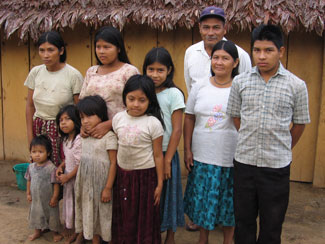Can We Trust an Adult's Estimate of Parental School Attainment?

In social sciences, researchers often need to know the parental school attainment of adult subjects, to, for example, control for unobserved attributes of subjects or to assess the representativeness of samples in panel studies. When researchers cannot ask parents about their school attainment, they must ask adult offspring about the school attainment of their parents.
We assess the accuracy of answers provided by adults about the school attainment of their parents with data from a native Amazonian society in Bolivia (Tsimane’). We first asked all women (N = 322) and men (N = 328) over the age of 16 to report the maximum school grade they had completed. We then asked people to report separately the maximum school grade attained by their mother and father. Because about half of the adults had parents in the sample, we could compare answers provided by the offspring with answers provided by the parent.
Offspring overestimate the school attainment of their parents. Less than 75% of the people in the sample provide information that matched information provided by their parets. They also report inaccurately other human capital attributes of their parents (e.g., writing skills, fluency speaking Spanish, practical indigenous knowledge of medicinal plants).
Results mesh with findings from the United States about the lack of reliability of adults’ self-reports about parental school attainment. If schooling is a socially desirable trait, respondents might misrepresent themselves and overreport school attainment to project a favorable impression. But the misrepresentation can also be due to faulty recall.
References
“Can we trust an adult's estimate of parental school attainment? Disentangling social desirability bias and random measurement error” Godoy, R; Reyes-Garcia, V; Tanner, S; Leonard, WR; Mcdade, TW; Huanca, T. FIELD METHODS, 20 (1): 26-45 FEB 2008

